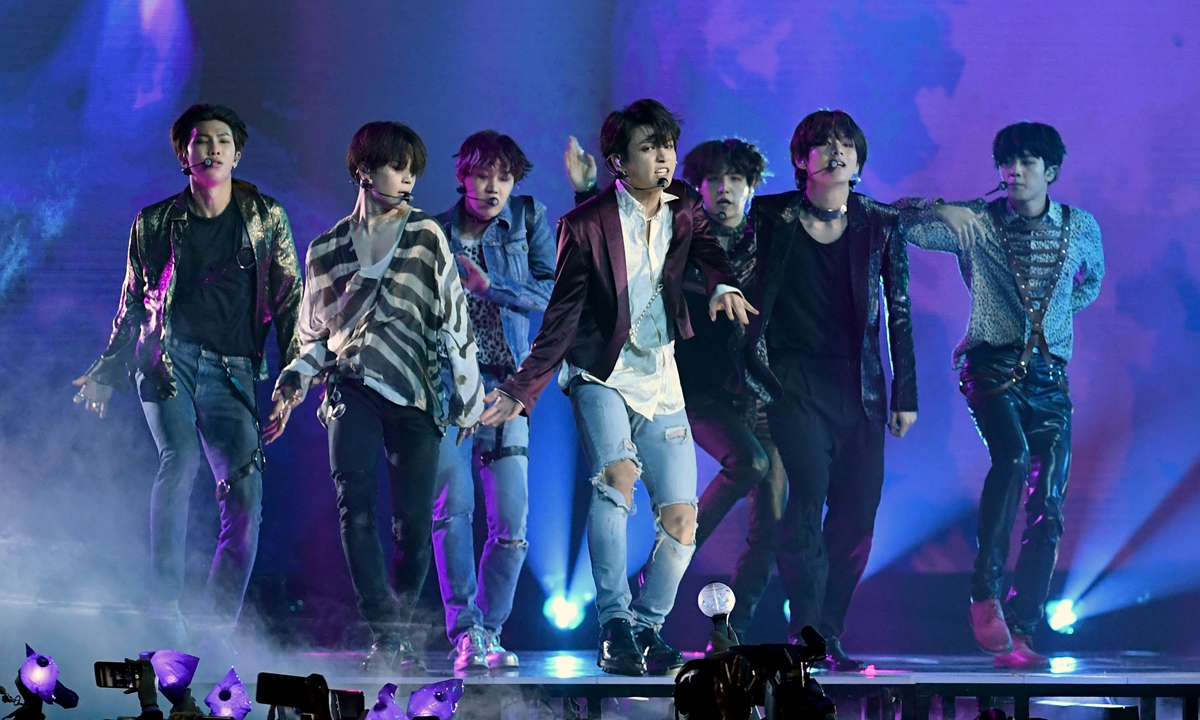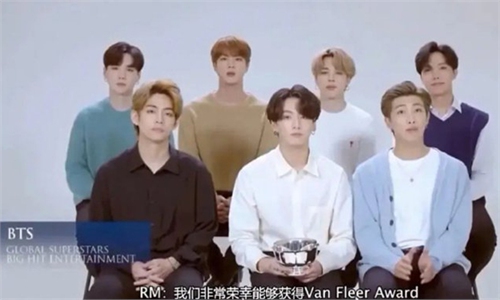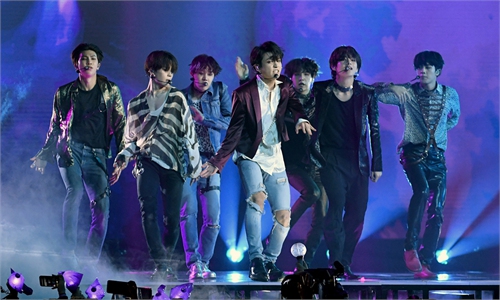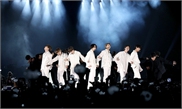
K-pop boy band BTS Photo: AFP
The incident involving South Korean K-pop band BTS has caused a stir on China's internet. Over in South Korea, public opinion is even more shrill.The remarks made by BTS leader Kim Nam-joon regarding the Korean War (1950-53) was aimed at the Americans. Many Americans might feel pleasant about his comments regarding the war and his perceptions of China-US relations. A US Department of State spokesperson even lauded BTS.
Many Chinese people naturally felt uncomfortable with his words. The internet is a place where people can easily release their sentiments. As such, some Chinese netizens (including BTS fans) have openly expressed their dissatisfaction and emotions online. However, very few China's mainstream media outlets reported or commented on this issue. A response from a spokesperson from China's Ministry of Foreign Affairs also showed restraint when asked about the matter by reporters.
By contrast, South Korea's mainstream media have all reported on the reactions of Chinese netizens, with clearly sensational tendencies. A heavy-weight from the opposition party even criticized the silence of the administration of President Moon Jae-in on social media. All these moves are heightening tensions.
BTS fans in China, who are consumers, have the right to express their thoughts. Opinions on China's internet sphere are diverse, as we also saw different voices that try to mediate. Not all criticisms against BTS are furious or fierce. Some netizens pointed out that BTS should not get involved in politics. Such suggestions are advisable for a popular band. And certain brands have quickly called off BTS-featured adverts - that is their own decision after making market risk assessments.
All in all, this incident illuminates the fact that select quarters of public opinion in South Korea do not respect the rights of Chinese netizens to express their own ideas. In their view whatever the South Koreans say is correct because they have freedom of speech, but it is inappropriate for Chinese netizens to utter dissatisfaction. And if they do, they are dismissed as merely being nationalistic. That's not fair.
Currently, international relations are tense. This is making the opinion sphere in each country (and particularly online) more sensitive than ever. When commenting on multinational affairs, people should take into consideration the seriousness of the situation and attempt to strike a proper balance.
Both Chinese and South Korean foreign ministries have adopted a low-profile attitude with this BTS-triggered incident. Besides netizens in both countries, the most radical voices are coming from opinion institutes and a few political figures in South Korea. I believe they have played a destructive role in the normal and friendly cooperation between China and South Korea. I hope they can behave themselves.
The author is editor-in-chief of the Global Times. opinion@globaltimes.com.cn




